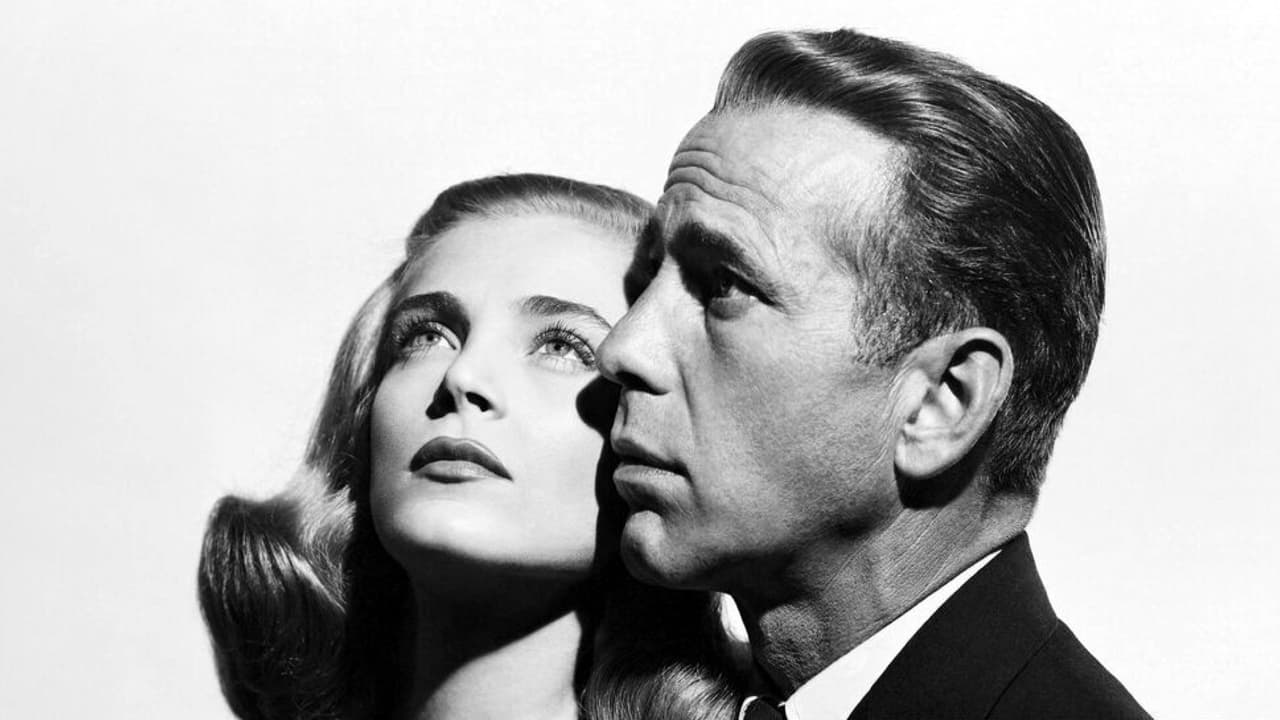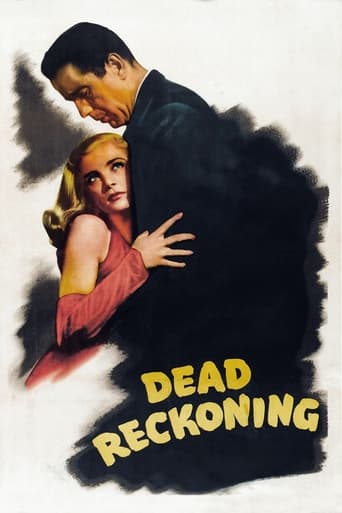larz928
If you've never been played by a woman like a Stradivarius violin, you might not get emotionally drawn in to this film. Don't watch superficially, as the sharp dialog is so witty and quick that it may be missed. Watch it twice, unless you have an excellent memory, because none of the dialog is throw-away - it all has meaning, be it flashbacks by allusion, classic metaphors, anthropomorphisms, and other artful word-play. It's Shakespeare steeped in crude and biting 1920s-1940s vernacular, which gives it the smell of wet city streets. It's intelligently scripted by hard-bitten crime genre aficionados. Don't compare it to the cartoon-like Maltese Falcon, which goes from point A to B to C, with cartoon characters being ushered in and out and blackbirds all neatly tied up in Christmas wrap. That was comic book panels. This has realism and smarmy characters played off against one another. There may have been previous stronger supporting actors, but sameness would keep you from focusing on the story and characters. "My first mistake was letting you sing that song..." From murder, to mayhem, and a femme fatale feline catting a ... mouse? This woman grows in his pocket, but he can't keep her there.
Edgar Allan Pooh
. . . MALTESE FALCON wannabe, with Humphrey Bogart co-star Lizabeth Scott an equally silly and cheap Lauren Bacall knock-off. She's not even a Mary Astor, not meriting the hangman's noose (an anachronism in FALCON, as Sam Spade's California had moved on to gas already). Scott's "Coral" or "Dusty" or "Mike" or whomever is a sleaze from Detroit, a dive known as much for its muscle women (think Aretha Franklin or Madonna) as its muscle cars. An alluring magnet for brain-damaged guys, most viewers will care very little what happens to Coral. If you can imagine FALCON without the black bird, Astor, Peter Lorre, and Sidney Greenstreet, you still won't be picturing how wrong-headed DEAD RECKONING is. It's full of dead ends--a coded letter, a jumping padre, a Congressional Medal of Honor winner are all dropped like hot potatoes in favor of a soap opera love yarn that all but the most obtuse know will lead nowhere. DEAD RECKONING is not unlike a patchwork quilt hastily sewn together by a blind-folded gent with one hand tied behind his back who's never take home economics. Poor Bogie is left grasping at straws here.
ElMaruecan82
"To Have and Have Not" was a déjà-vu of "Casablanca"… with a novelty though, and not the least, it had Lauren Bacall in her first starring role. And she didn't just steal Bogart's thunder; she stole his heart too, revealing herself to be the perfect match for Bogie, in every meaning of the word and both on the screen and in real-life. The genuinely growing chemistry between them during the film was enough to cement the film's legend."The Big Sleep" was a déjà-vu of "The Maltese Falcon" and while it didn't have its colorful supporting cast (no Sydney Greenstreet, Peter Lorre or Mary Astor) it did delightfully on the female casting department. Besides, as a Rubik-cube of plot complexity with one double-crossing, two lies and three false tracks by inches of celluloid that it was, it still had Bacall all the way. As long as she and Bogart ended up embracing, it was worth its ticket's price, the pop-corn box … and the little spot in Hollywood's firmament.Where am I going at with all these comparisons?"Dead Reckoning" suffers from the same déjà-vu syndrome but without any redeeming quality. It only exists on the basis that the stuff film-noir was made on already worked, that all it took was to place Bogart in his tough-guy routine and let him go through it. Well, as much as I admire Bogart, he never did without partners, lovers or fitting antagonists. Here, he carries the film alone, and while it's always a pleasure to watch him as his typical lone rider with a soft spot for a female outcast, there has to be something new we remember the film from. Take "Dark Passage" for instance, it had Bogart and Bacall, it was far from being a masterpiece, but it still had that Hitchcockian vibe sweating out of each frame, it had Agnes Moorehead and the memorable fact that Bogart's face isn't seen for two thirds of the movie. This is where "Dead Reckoning" fails, it has everything to satisfy its audience, except the most important one: something to remember the film for. Granted its contrived plot was easier to follow than "The Big Sleep" but the investigation didn't have that punch-and-guts dynamite style, these brief flirtatious moments (like that slutty sister or that nymphomaniac librarian), it didn't have a sidekick, some comic-relief to drown our bitterness on, it had only Bogart and Lizabeth Scott. But while we care for Bogart, we never really care for Lizabeth Scott, who seems like a poor man's Lauren Bacall. This is not to dismiss her talent or anything, she could pass as a fitting love interest to Bogie and I loved that beatnik fashion she was dressed in, in the last act, but there's an obviously intended physical resemblance to Babe, and it's so blatant it is distracting, you can't help but making comparisons : same blonde hair, same facial features, same husky voice although I hated her accent which made her sound like Kaa the Python. Sssssseeee what I mean? And the director John Cromwell didn't pull much effort to let her exist on another basis than being a Lauren Bacall's second choice.Take the 1950 film, "In a Lonely Place", there was something that Gloria Grahame brought to the screen that only belonged to her, not even to Bacall, she had that dignified look but average beauty, that sadness and melancholy graved in her face, that lack of glamor and superficiality that could make her fall in love with a loner like Dixon Steele. But in "Dead Reckoning", Scott never quite makes it as a potential love interest for Bogie, because she's never given the choice. When she's not Bacall, she becomes Mary Astor-like villain inspiring a "you're good" rip-off (among many other stolen lines) but the tears in her eyes are as artificial as that goddamn rain scene at the end of the confession.Speaking of it, what was the point of even making it a confession when the listener, a priest has nothing else to do than watching the hero disappear before raindrops start falling as if sky was urinating (the lousy effect of a garden hose) Nothing really makes senses from the beginning. Bogart investigates over his army-buddy's disappearance, but is the paratrooper or the taxi-cab owner who does it, in both cases, where did he achieve his Private-eye skills, why not making it a PI movie from the beginning? Never mind, Bogart is good, even very good, but is that enough when the supporting cast doesn't hold a candle to the heavyweights I mentioned, not even Elisha Cook Jr.Morris Carnovsky as the mastermind Martinelli and Marvin Miller as Krause, deliver remarkable performances and it would be unfair to blame them, but I couldn't buy baby-faced Krause as a thug with sociopath impulses, if one thing, it was Bogart who seemed to bully him and we're almost glad when he gets it and Martinelli was just severely underused. But that wasn't even the problem; it's just that the casting didn't help elevating the movie higher than its timid level of entertainment. And I know there's something wrong in the film when I start talking about other movies, and seems like I broke a new record with this one.Well, to conclude on a positive note, at least, there is Bogie, and he's good, but the rest is just an ersatz of all his previous films without something new to hang our hopes on.

